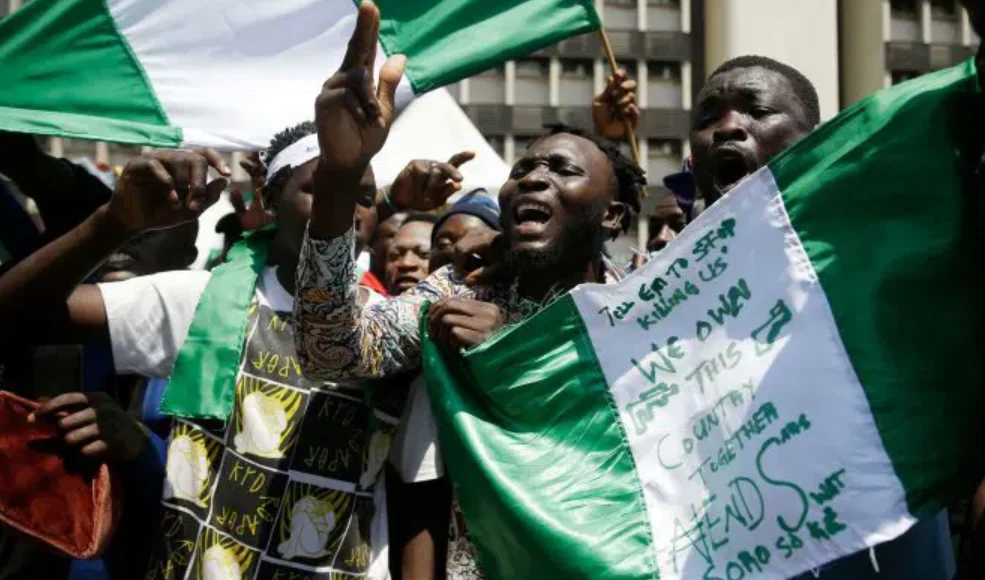Nigerian officials have already warned against attempts to foment Kenya-style violent protests that forced the government in Nairobi to repeal new taxes and name a new cabinet.
Africa's most populous country is struggling with soaring food inflation and a sharply devalued naira currency after President Bola Ahmed Tinubu introduced reforms a year ago that aim to revive the economy in the long term.
Speaking to journalists, Secretary to the Government of the Federation George Akume urged Nigerians to avoid the protests, calling for dialogue and listing the measures Tinubu's government had introduced to help alleviate economic pain.
"We therefore appeal to Nigerians of whatever persuasion, belief, demography, gender and status to shun calls for protest against hunger by prioritising peace and progress," Akume told reporters in Abuja.
"Government is wary of the dangers associated with protests that are vulnerable to being hijacked by bandits, insurgents and other criminals."
The last major protest in Nigeria was in 2020 when young activists took to the streets to rally against the brutality of the SARS anti-robbery squad in demonstrations that became the largest in Nigeria's modern democracy.
The so-called #EndSARS protesters succeeded in having the unit disbanded, but the rallies ended in bloodshed at their Lagos epicentre. Rights groups blamed the army for opening fire on peaceful protesters, but the military said troops used blanks to break up a crowd defying a curfew.
Nigeria's latest protests came when Kenya's President William Ruto was forced to withdraw new taxes and name a new cabinet after more than a month of anti-government protests during the worst crisis in his almost two years in office.
In Uganda, officials also arrested dozens of people earlier this month after they took part in banned anti-corruption protests organised online by young activists inspired by Kenya's rallies.
Nigeria's movement, organised by a loose collection of small civil society groups, has captured interest with a mostly online campaign using the hashtags #EndbadGovernanceinNigeria and #RevolutionNow.
Government officials have alternated between warnings over violence and harsh rhetoric to more conciliatory statements. Protest leaders say government warnings are setting up rallies for repression.
They are calling for Tinubu to reverse some of his reforms, such as his suspension of a costly fuel subsidy, but also more general demands such as "end hardship and hunger".
Tinubu said ending the fuel subsidy when he came to office more than a year ago was essential to help the economy. But fuel prices have since tripled, with a knock-on impact on inflation. Food inflation is now more than 40 percent.


